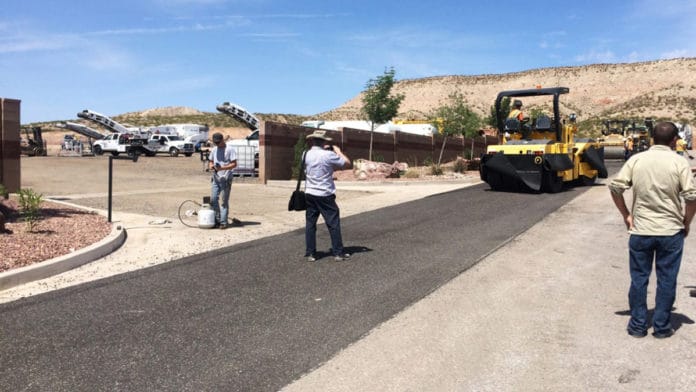Imagine being able to renovate a stretch of road using a new material made of recycled plastic water bottles, which is even stronger than the previous one. In Los Angeles, TechniSoil Industrial wants to prove that these dreams can be a reality with “plastic asphalt.”
Los Angeles, the largest city in the state of California and the second-most populous city in the United States, has launched a noble initiative aimed at harnessing recycled plastic waste to make asphalt used for paving streets.
The American startup– which will lead two road renovation projects in Los Angeles by December – has been working for many years on this new fragmentation technique. The method basically breaks up plastic into tiny pieces, which are melted into an oil to replace petroleum-based bitumen. This composition is mixed with asphalt waste (previously crushed), creating a new pavement – stronger than the previous one.
The great advantage of this process is the reduction of the environmental impact, as thousands of PET bottles are reused. In addition, the technique allows the recycling of damaged asphalt.
Los Angeles City Hall plans to set up dozens of collection points across the city to raise the required volume – a few tons for a single street asphalt – of plastic to be turned into oil. Also, applying plastic asphalt is estimated to reduce paving material costs by up to 25%.
According to Technisoil, laboratory tests have shown that the product can be 8 to 13 times stronger than conventional asphalt. Being tougher and more durable, the Los Angeles Street Service Department says its use “can significantly reduce maintenance costs.”
“With a traditional road, for every one lane mile, you have to mill out 42 trucks’ worth of waste and haul that away, and bring in 42 new trucks of new hot mixed asphalt,” says Sean Weaver, president of TechniSoil Industrial. “We’ve eliminated that 84 trucks of hauling in and hauling out.”
This is a much more economically viable alternative than traditional asphalt!
